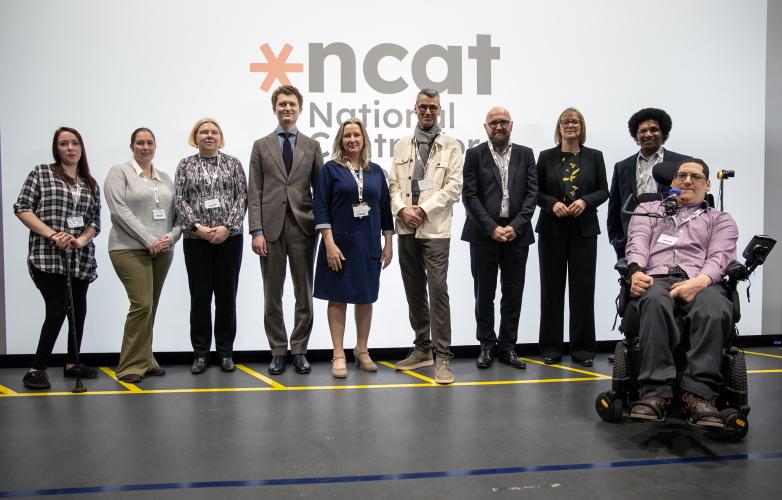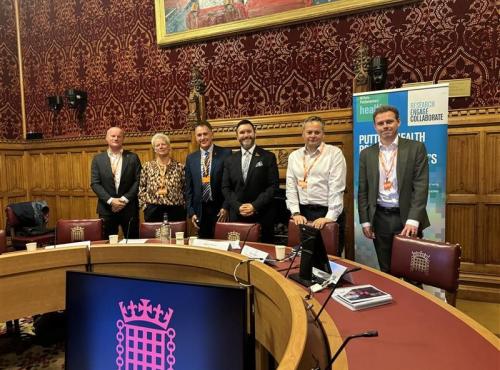Launching The National Centre for Accessible Transport
Policy Connect is today taking part in the launch of the National Centre for Accessible Transport (NCAT).
The new Centre - in which Policy Connect is a consortium partner - will work over the next seven years to make all modes of transport in the UK accessible for disabled people.
In a first for the UK, NCAT is a £20 million project funded by Motability, Policy Connect will work in collaboration with Coventry University, The Research Institute for Disabled Consumers (RiDC), Designability, Connected Places Catapult, and WSP to fulfil its mission to ensure that no disabled person faces challenges arising from poor access to transport.
NCAT aims to deliver on that mission through innovation and by engaging with disabled people to better understand their experiences and co-design solutions; amplifying the voices of disabled people in all decision making; collaborating widely with all transport stakeholders; and demonstrating good practice and impact to influence policy.
Policy Connect will establish a permanent policy commission on accessible transport in Parliament to be led by our Head of Accessible Transport Clive Gilbert.
Clive Gilbert said: “Policy Connect is delighted to be joining the National Centre for Accessible Transport. Through our work with parliamentary groups and commissions spanning from manufacturing to health and climate change, we have over 25 years’ experience of creating better public policies that help solve society’s challenges and change lives. This project will build on our expertise in assistive and accessible technology (ATech), where we have helped drive improvements to the lives of disabled people through the APPG for Assistive Technology and the ATech Policy Lab.
As a disabled person myself, I am all too aware of the barriers that inaccessible transport can create to accessing services such as education and healthcare, getting a job and even making and sustaining friendships. These barriers incur a cost – not only for disabled people but also to the economy and wider society that misses out on their participation.
Our new policy commission will make sure that disabled people’s views and experiences are heard in the corridors of power at all levels of government.”
Motability’s research shows that disabled people in the UK currently make *38% fewer journeys than non-disabled people – a figure that hasn’t changed in the last decade. This impacts disabled people’s access to healthcare, employment, education and social activities.
An event to officially launch the centre is taking place at Coventry University today (February 15) and invited guests will hear directly from disabled people about their current travel and transport experiences.

To find out more or get involved click here: www.ncat.uk
*About the Transport Accessibility Report
Disabled people make an average of 38 per cent fewer trips than non-disabled people. There has been no reduction in this gap over the past decade. Analysis shows that completely closing the transport accessibility gap for disabled people in the UK would deliver benefits in the region of £72.4 billion per annum.
The launch is taking place at Coventry University and you will be able to watch the live stream on YouTube from 1:00pm UK time.
NOTES TO EDITORS
NCAT
NCAT will work with disabled people, disability organisations, transport providers and policy makers to undertake research and develop solutions, making sure all modes of future travel systems (including road, rail, air and sea) have accessibility for disabled people at the heart of their development and delivery.
NCAT will be located in the National Transport Design Centre, a national hub for future transport design and development and a state-of-the-art facility operating within the Centre for Future Transport and Cities at Coventry University. The centre has deep, historic and regional links to the transport industry, with organisations such as Jaguar Land Rover and Horiba MIRA. NTDC has key research strengths around user-led and inclusive transport design and is highly integrated in an inter-disciplinary, transport research community.



